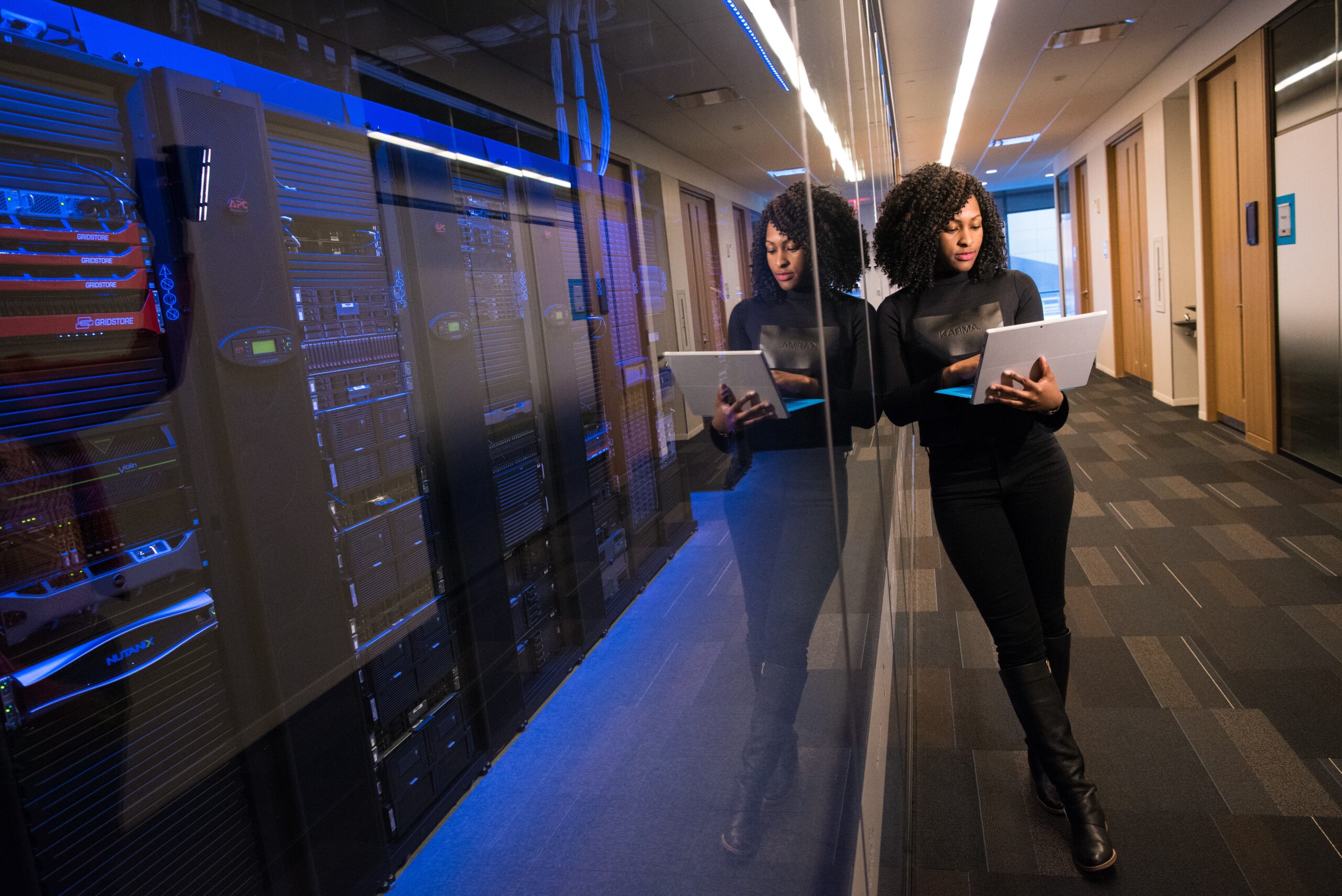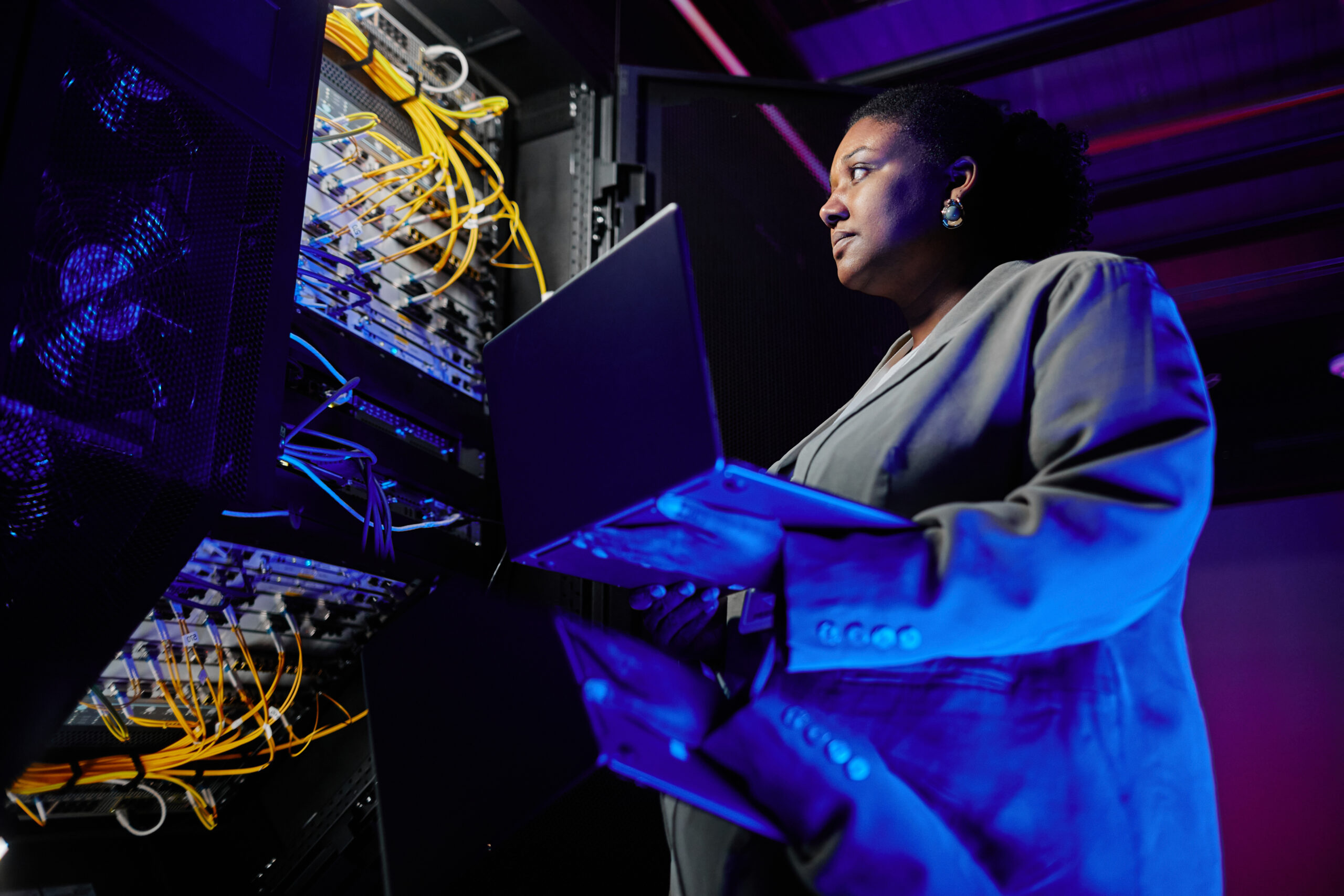What is a Data Center Pro?
A Data Center Pro is an IT professional responsible for the maintenance and smooth operation of data centers, which are the facilities that store and process massive amounts of data. Think of them as the backbone of the internet and modern technology!
What does a Data Center Pro do?
They ensure that the hardware and infrastructure of a data center run efficiently. Some key responsibilities include:
- Installing and Maintaining Equipment: Setting up servers, network devices, and storage systems.
- Monitoring Systems: Keeping an eye on power usage, temperature, and network performance.
- Troubleshooting Issues: Fixing problems with hardware, software, or connectivity.
- Managing Cables: Organizing the network of cables that connect servers and systems.
- Upgrading and Decommissioning: Replacing old equipment and securely disposing of outdated hardware.
Who is it for?
A career as a Data Center Technician is great for:
- Tech Enthusiasts: People who enjoy hands-on work with hardware and IT systems.
- Entry-Level IT Professionals: Those starting their IT careers and looking for experience with servers, networks, and infrastructure.
- Problem Solvers: Individuals who thrive on troubleshooting and fixing technical issues.
- Detail-Oriented People: Those who can manage complex systems and keep everything organized.
Why is this role important?
With businesses relying on cloud computing, big data, and online services, data centers are critical. Data Center Technicians ensure these facilities remain operational 24/7, keeping the digital world running smoothly.
It’s an excellent role for individuals who want a mix of physical tasks, technical problem-solving, and career growth opportunities in IT!


Curriculum
- 3 Sections
- 26 Lessons
- 12 Weeks
- Module 1: Network InfrastructureGain a solid foundation in networking concepts, configurations, and troubleshooting.12
- 1.1Cabling – Patching and color-coded termination
- 1.2Network Basics and Types
- 1.3Network Topology
- 1.4OSI Model and TCP/IP Concepts
- 1.5Data Encapsulation and Decapsulation
- 1.6DHCP Configuration and Management
- 1.7IP Addressing and Binary Conversion
- 1.8Subnet Masking and Network Segmentation
- 1.9Router and Switch Configuration
- 1.10Gateway Network Configuration15 Minutes
- 1.11Network Troubleshooting Techniques30 Minutes
- 1.12Quiz 150 Minutes13 Questions
- Module 2: Server HardwareMaster the essential hardware components and troubleshooting skills for managing and maintaining servers.7
- Module 3: LinuxLearn to install, manage, and troubleshoot Linux operating systems, a critical skill for data center professionals.10
- 3.0Linux Operating System Installation
- 3.1Understanding the Linux Boot Process
- 3.2Linux Filesystem and Navigation
- 3.3Linux Networking Setup
- 3.4File Management in Linux
- 3.5User and Group Management
- 3.6Ownership and Permission Configuration
- 3.7Storage and Partitioning
- 3.8Troubleshooting Linux Environments
- 3.13Quiz 330 Minutes12 Questions
No prior IT experience is necessary! Our program is designed to cater to both beginners and those looking to switch to a tech career. We'll start with the basics and build up your skills throughout the course.
Requirements
- Basic Understanding of IT Concepts: Familiarity with computer hardware, networking, and basic operating systems.
- Physical Readiness: Ability to handle physical tasks like lifting equipment, managing cables, and standing for extended periods.
- Problem-Solving Skills: Willingness to learn troubleshooting techniques for hardware and network issues.
- Technical Certifications (Optional): Entry-level certifications like CompTIA IT Fundamentals+ (ITF+) or CompTIA A+ can provide foundational IT knowledge.
- A working computer that can access the internet and run virtualizations
- Curiosity and drive to learn and communicate. The work works when you do the wor.
Features
- Hardware Installation and Maintenance: ○ Setting up servers, storage devices, and network equipment. ○ Performing routine maintenance and hardware upgrades.
- Networking Basics: ○ Understanding cables, routers, switches, and IP configurations. ○ Troubleshooting network connectivity issues.
- Monitoring Tools: ○ Training on software tools to track power usage, temperature, and system performance.
- Troubleshooting Techniques: ○ Identifying and fixing hardware, software, and connectivity issues.
- Cabling and Infrastructure Management: ○ Managing structured cabling and ensuring organization in the data center.
- Safety and Security Protocols: ○ Best practices for physical and data security in the data center environment.
- Hands-On Experience: ○ Practical labs for assembling servers, managing cables, and using monitoring tools.
- Soft Skills: ○ Communication and teamwork skills to collaborate with IT teams and report issues effectively.
Target audiences
- Career Changers: Individuals from non-IT fields looking to enter the tech industry.
- Entry-Level IT Enthusiasts: Beginners interested in gaining hands-on experience in IT infrastructure.
- Tech Support Professionals: Help desk or support staff seeking to specialize in data center roles.
- Students and Fresh Graduates: Those eager to start a career in IT and learn practical skills.
- Hardware Hobbyists: Individuals who enjoy building and maintaining computer systems and want to take their skills to a professional level.
- Seeking a better income to change your life and that of your generations



